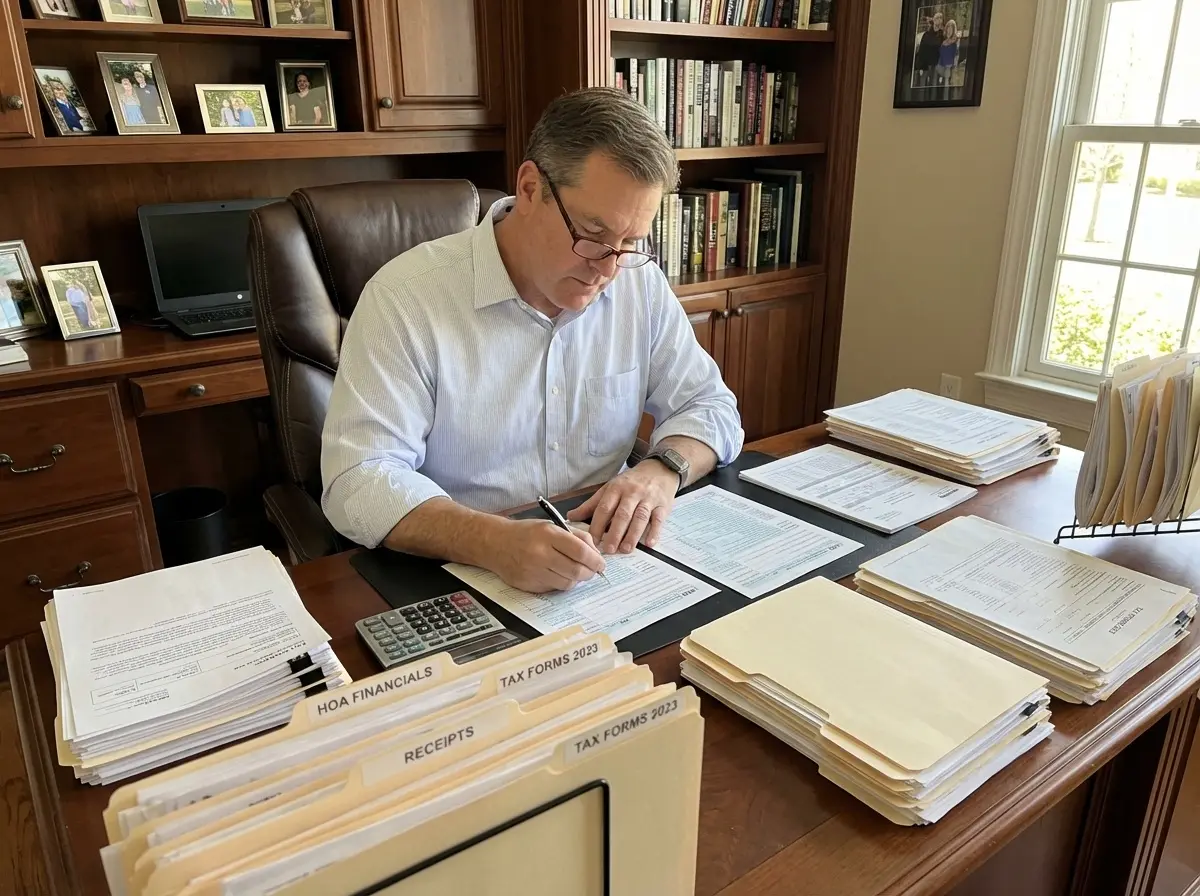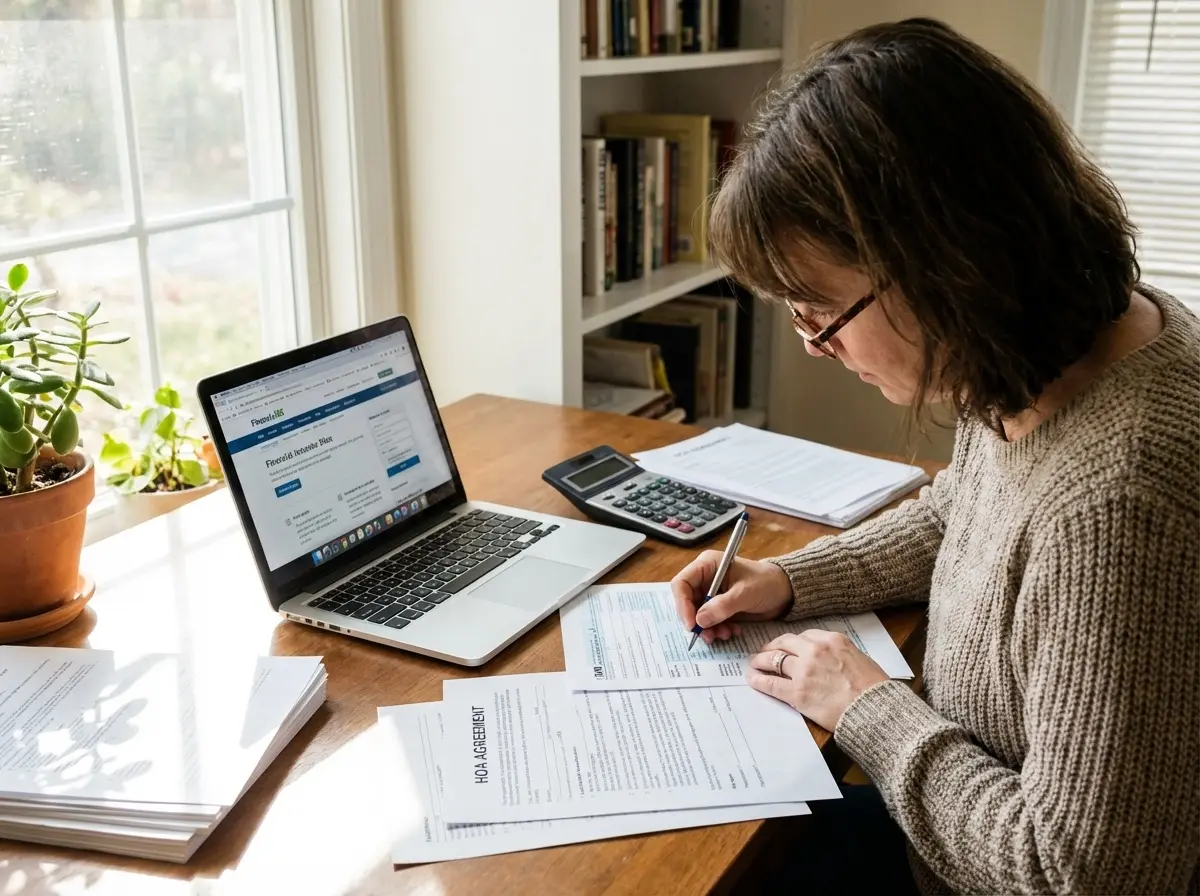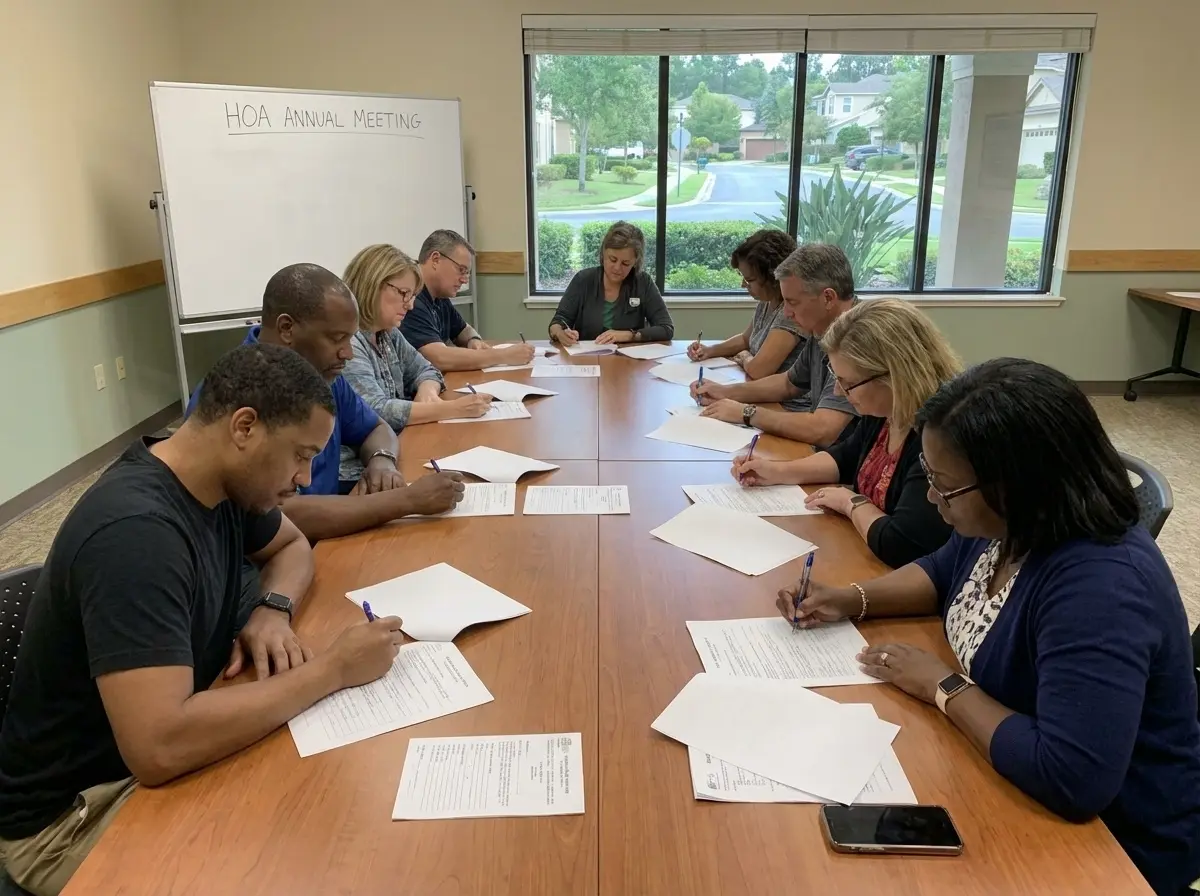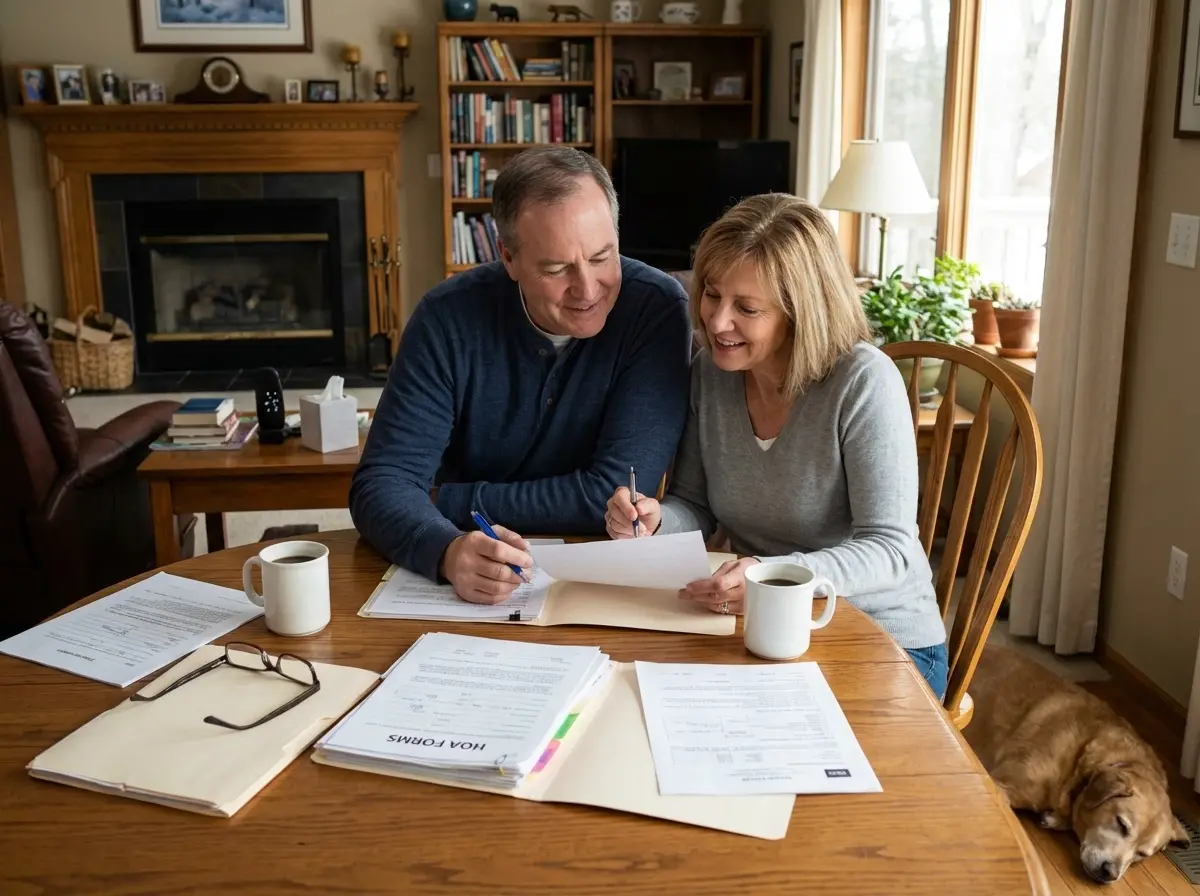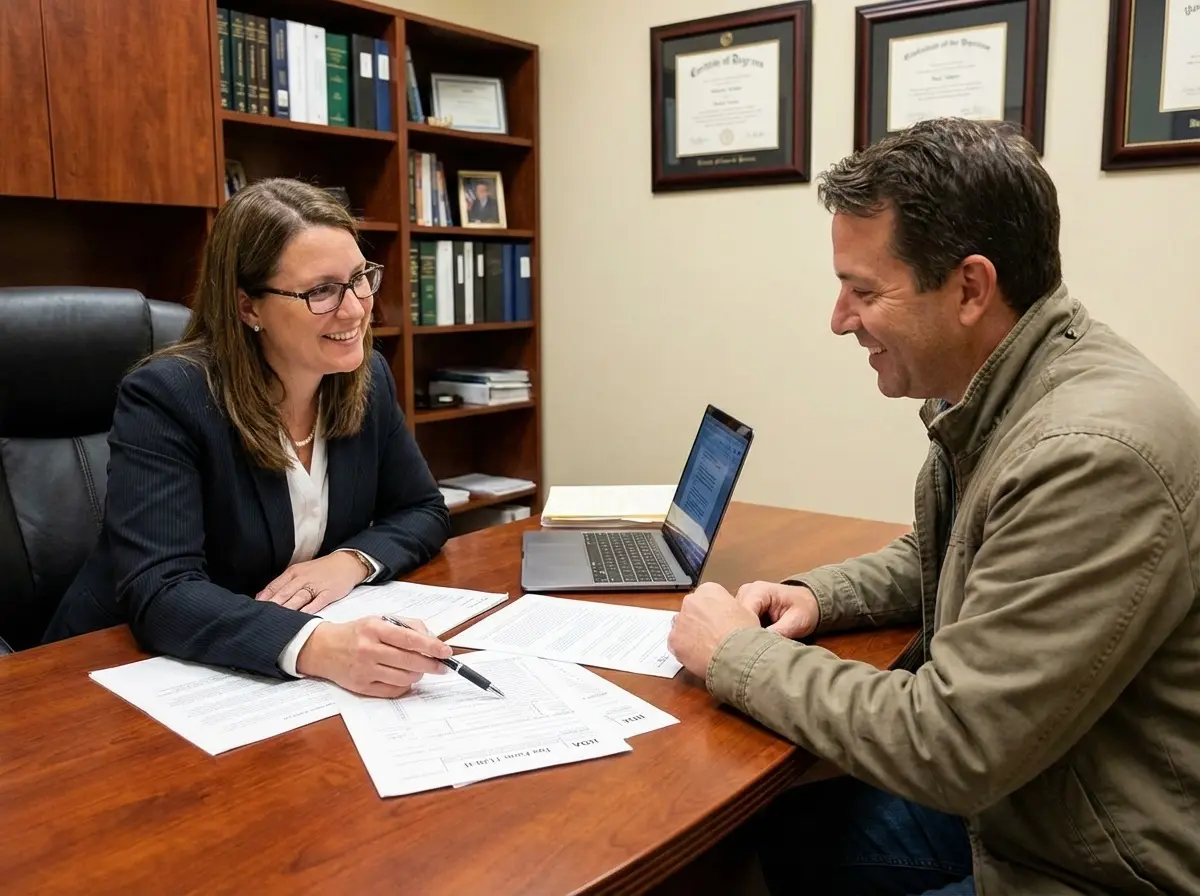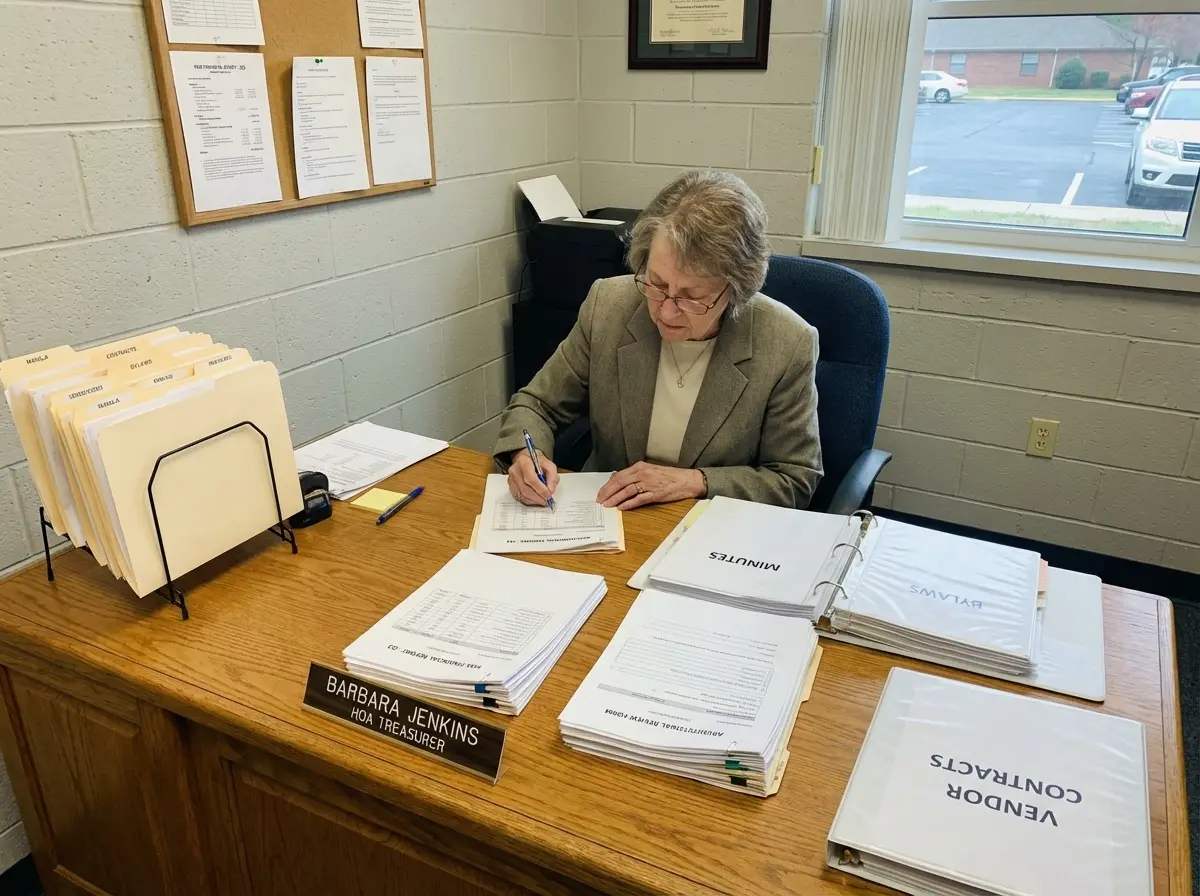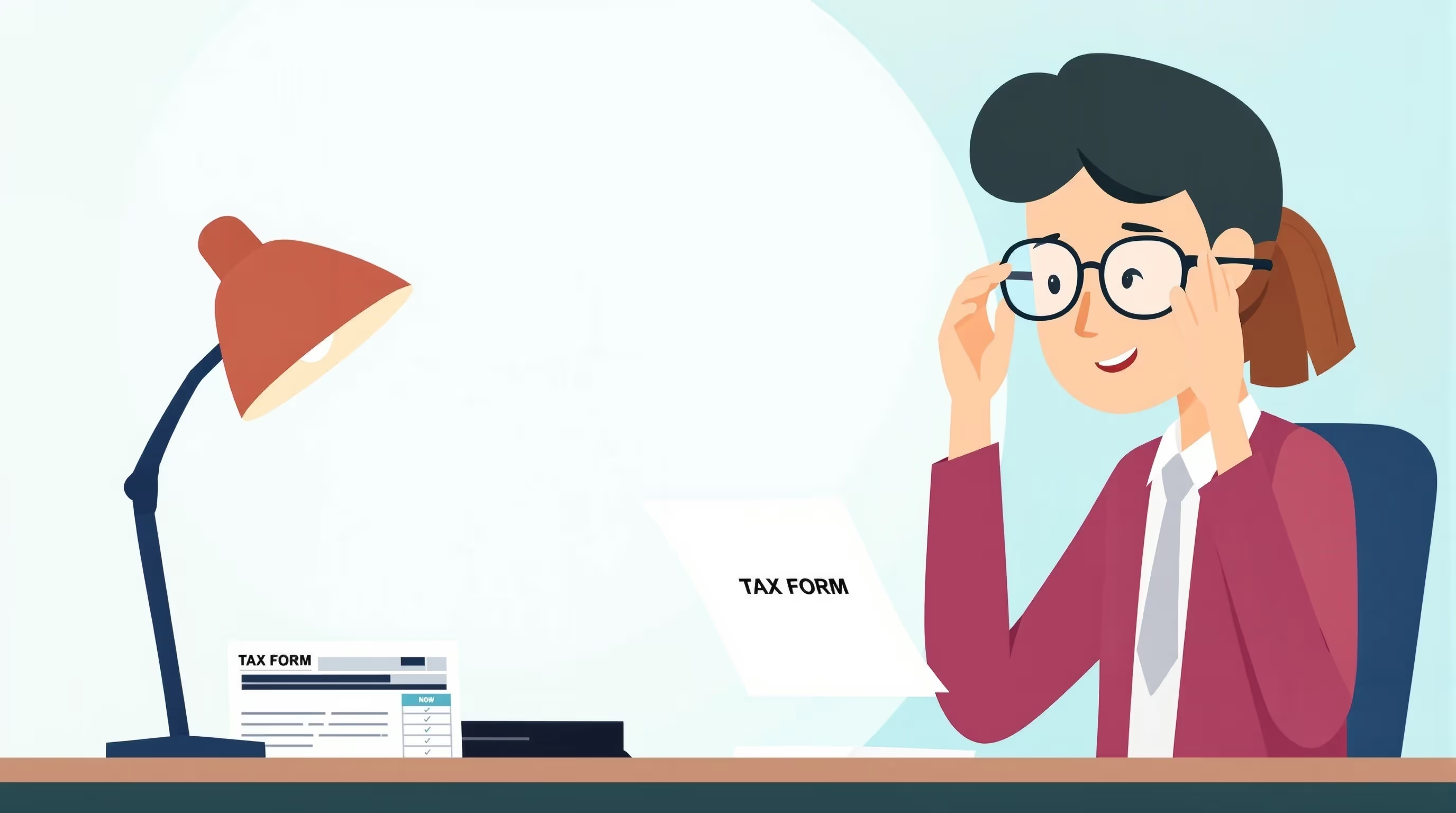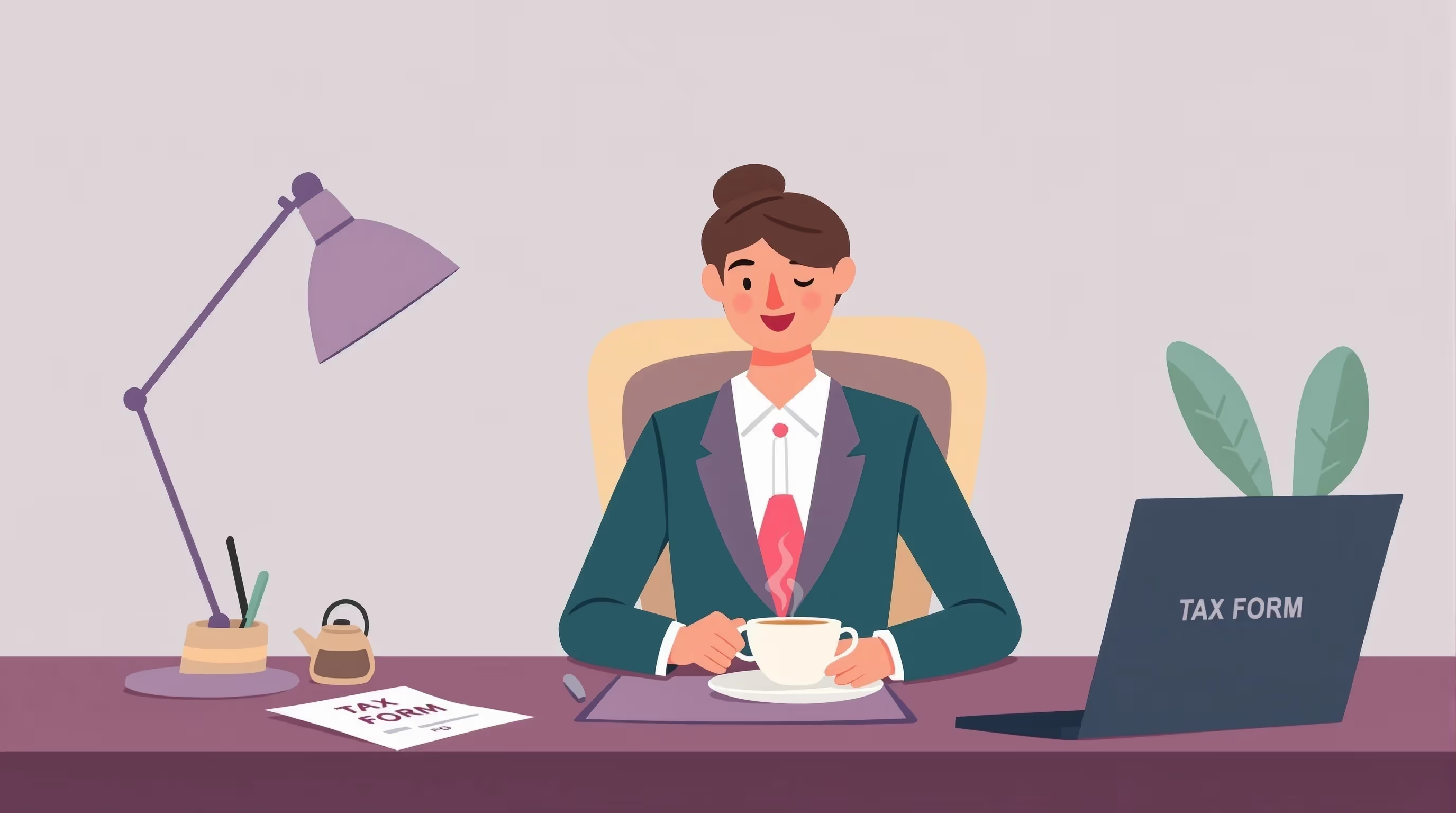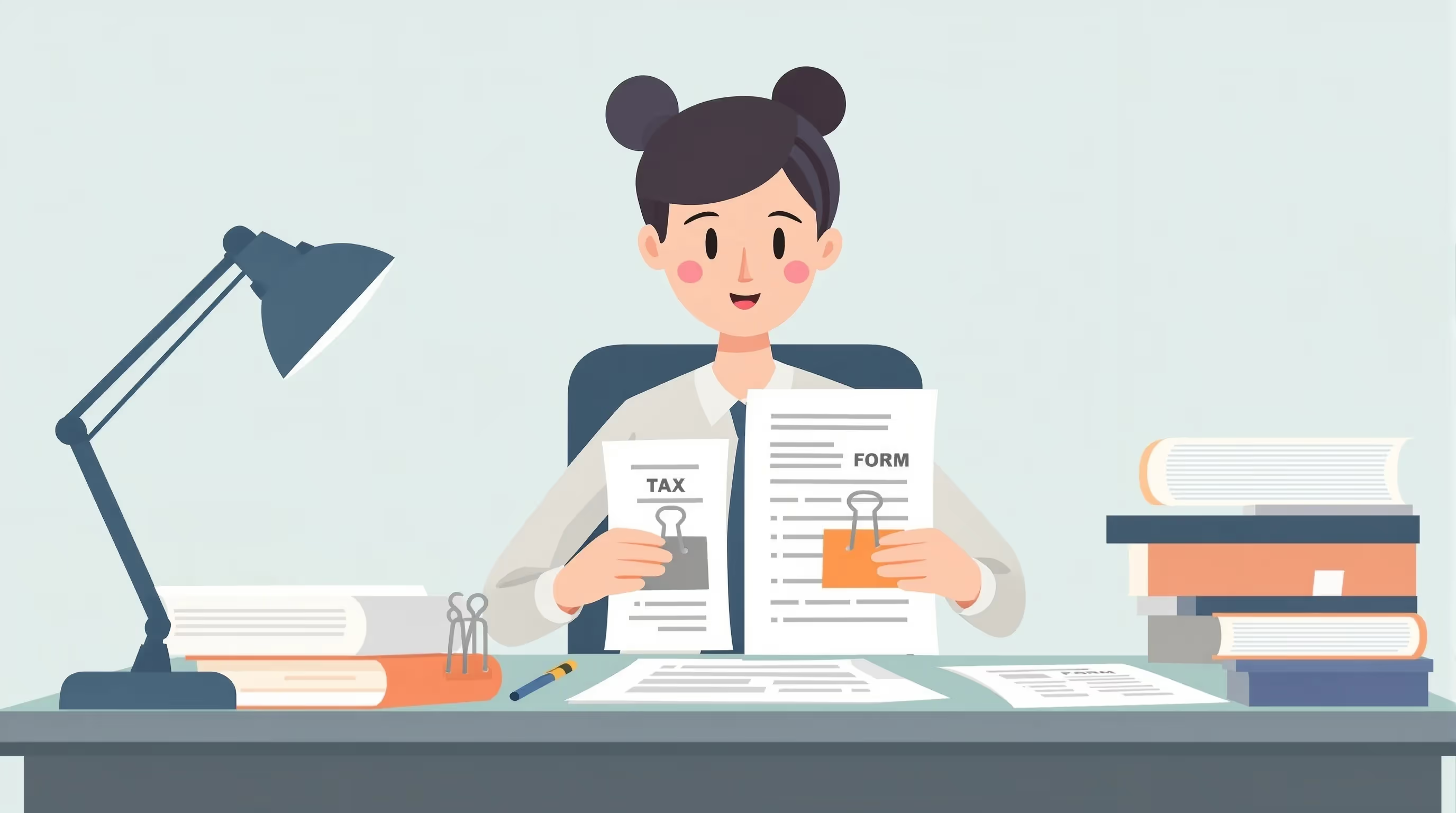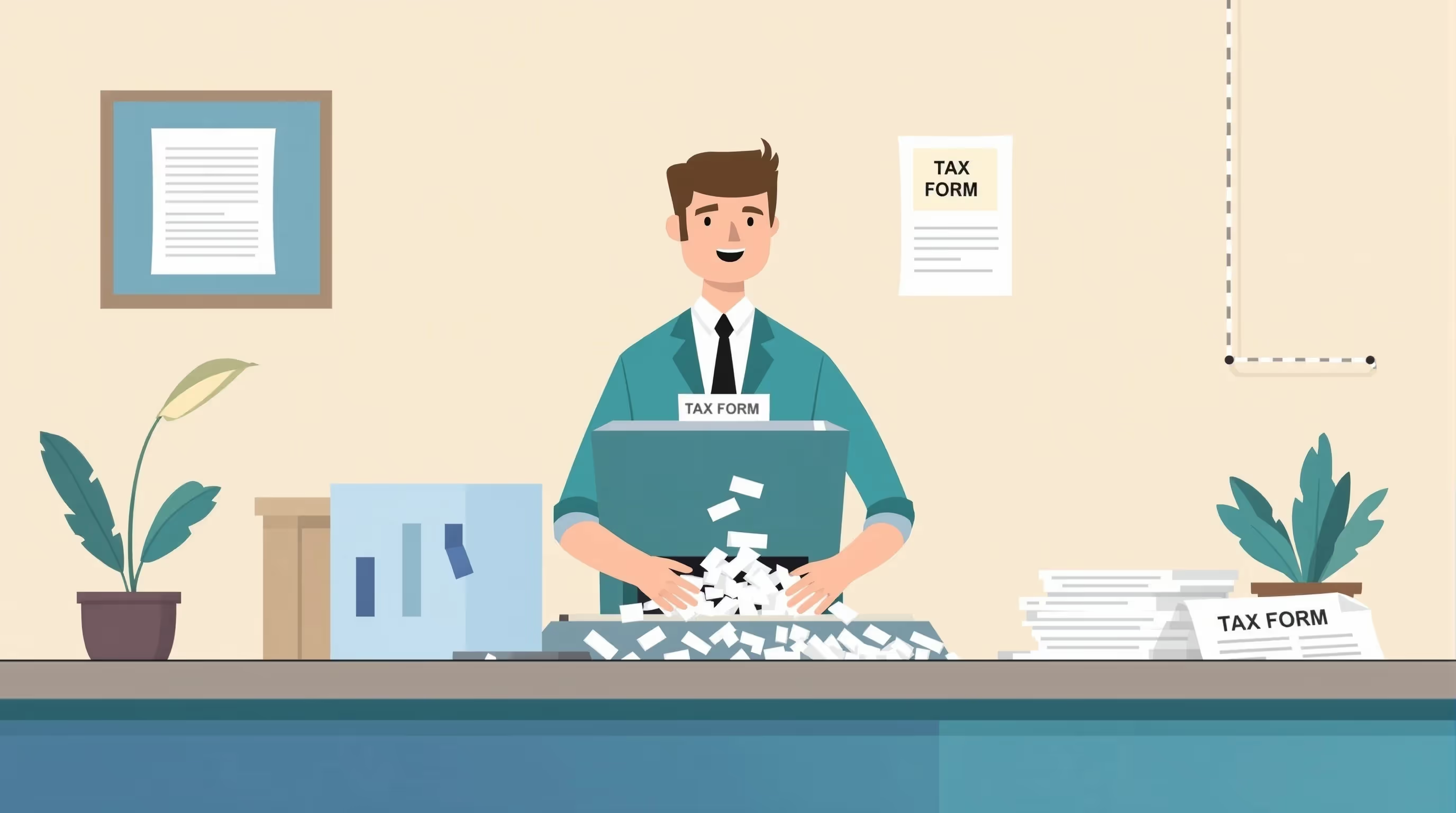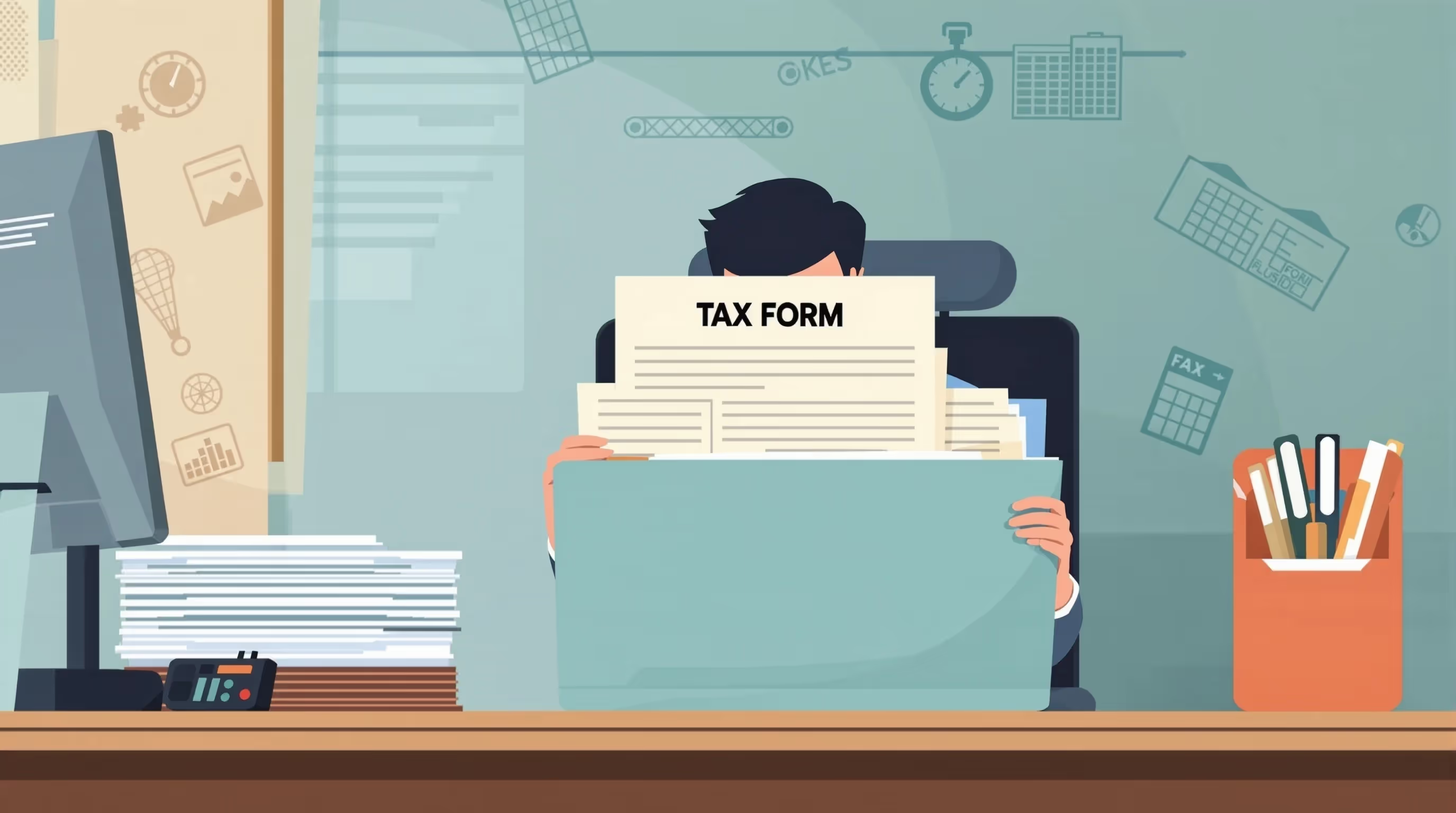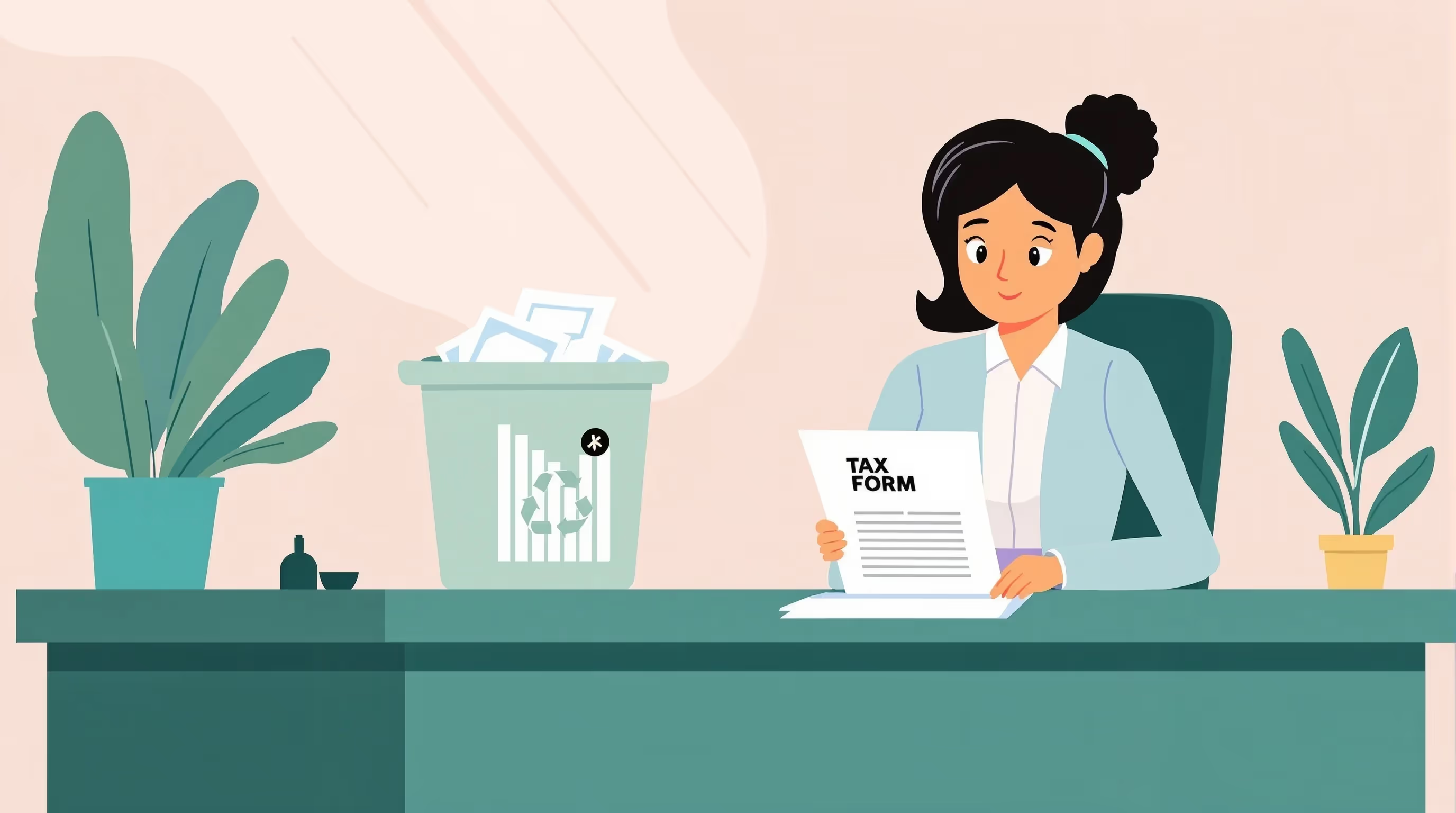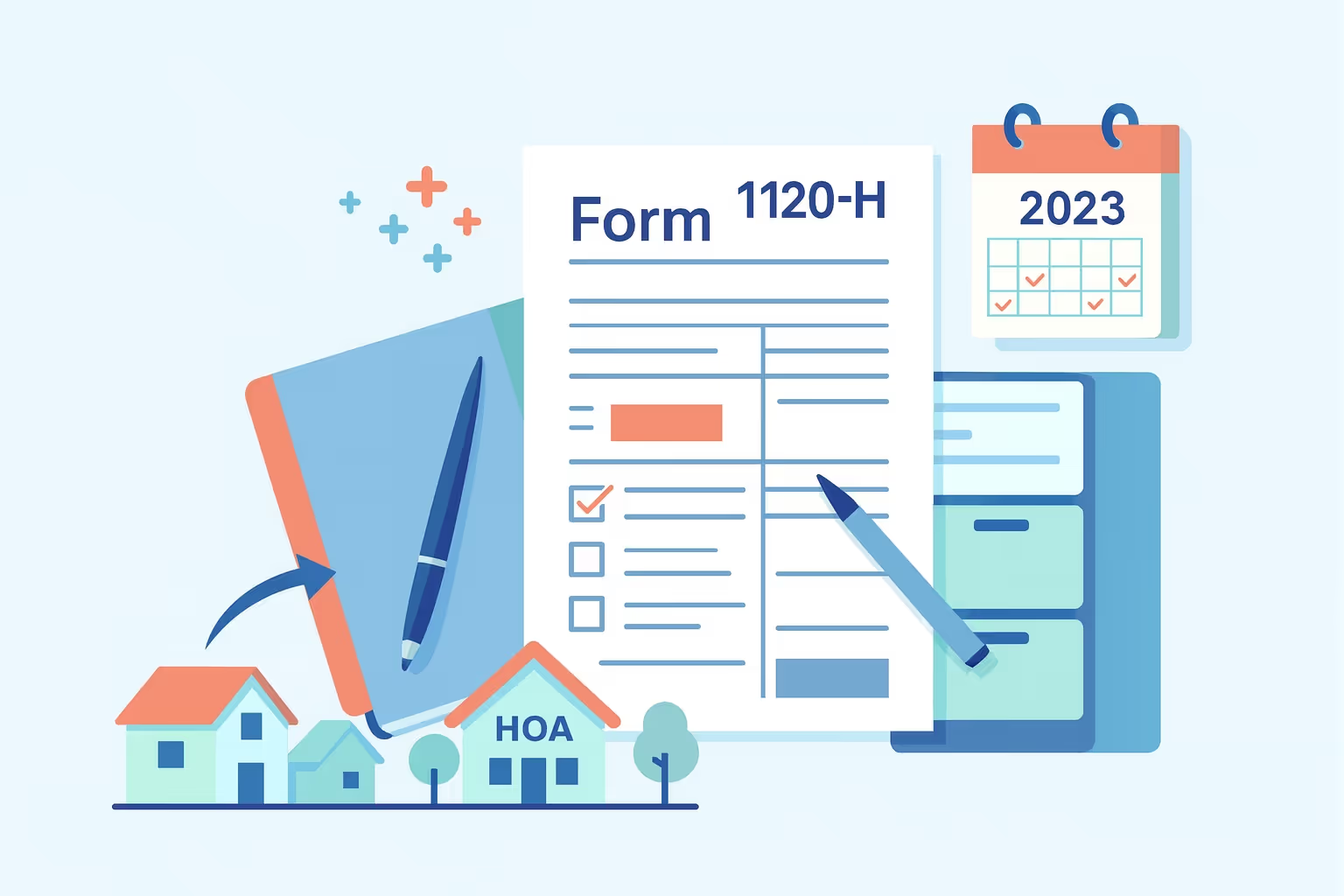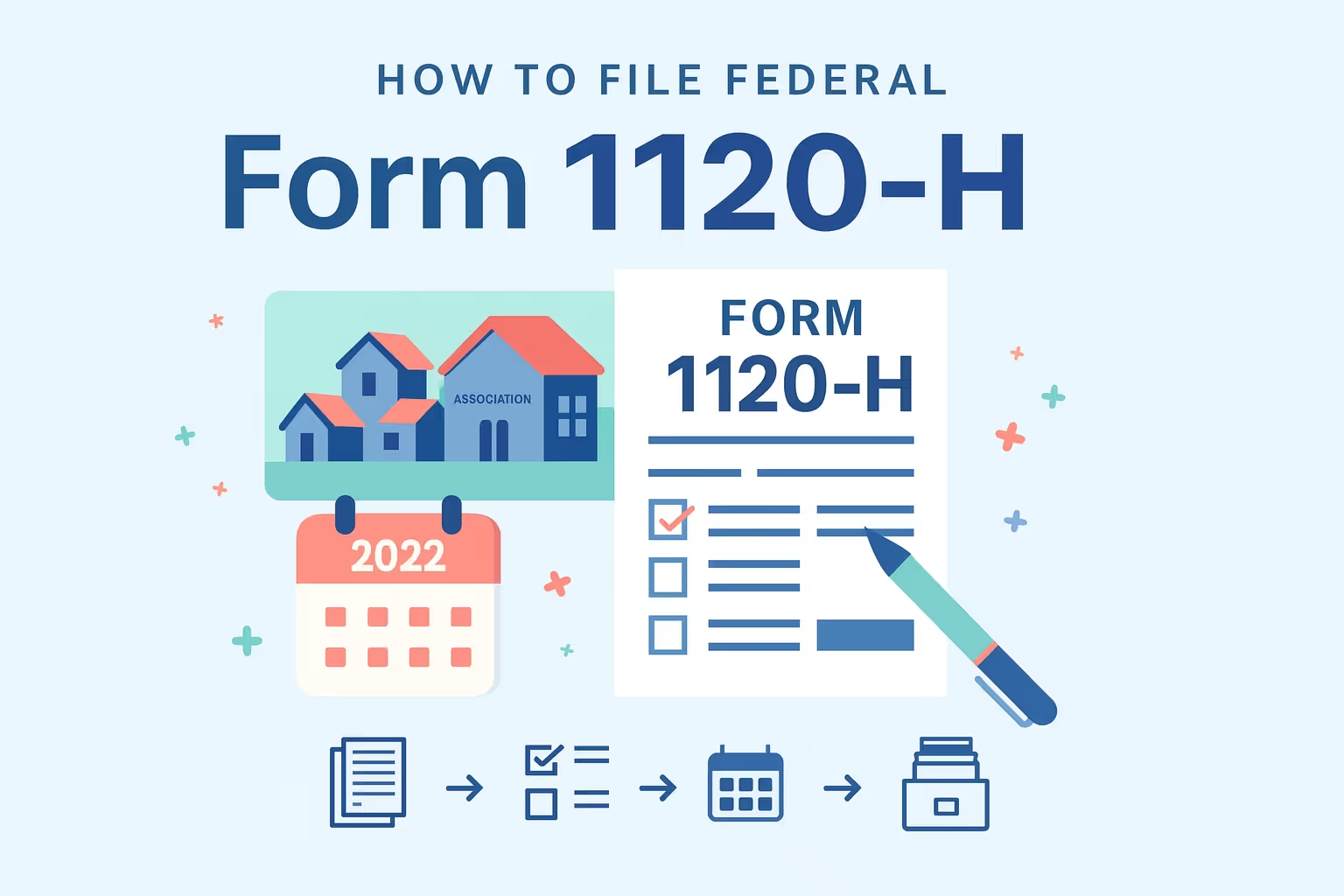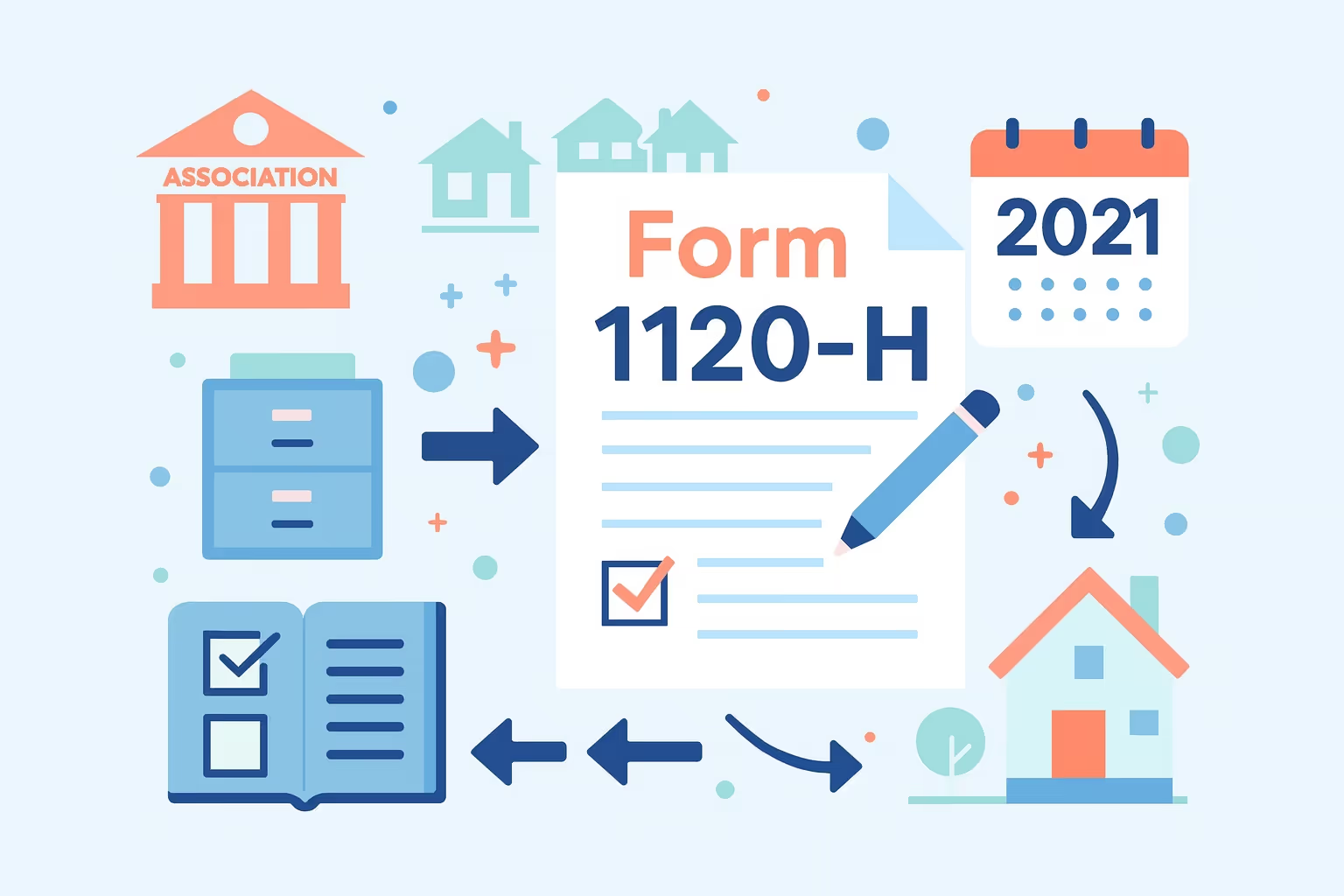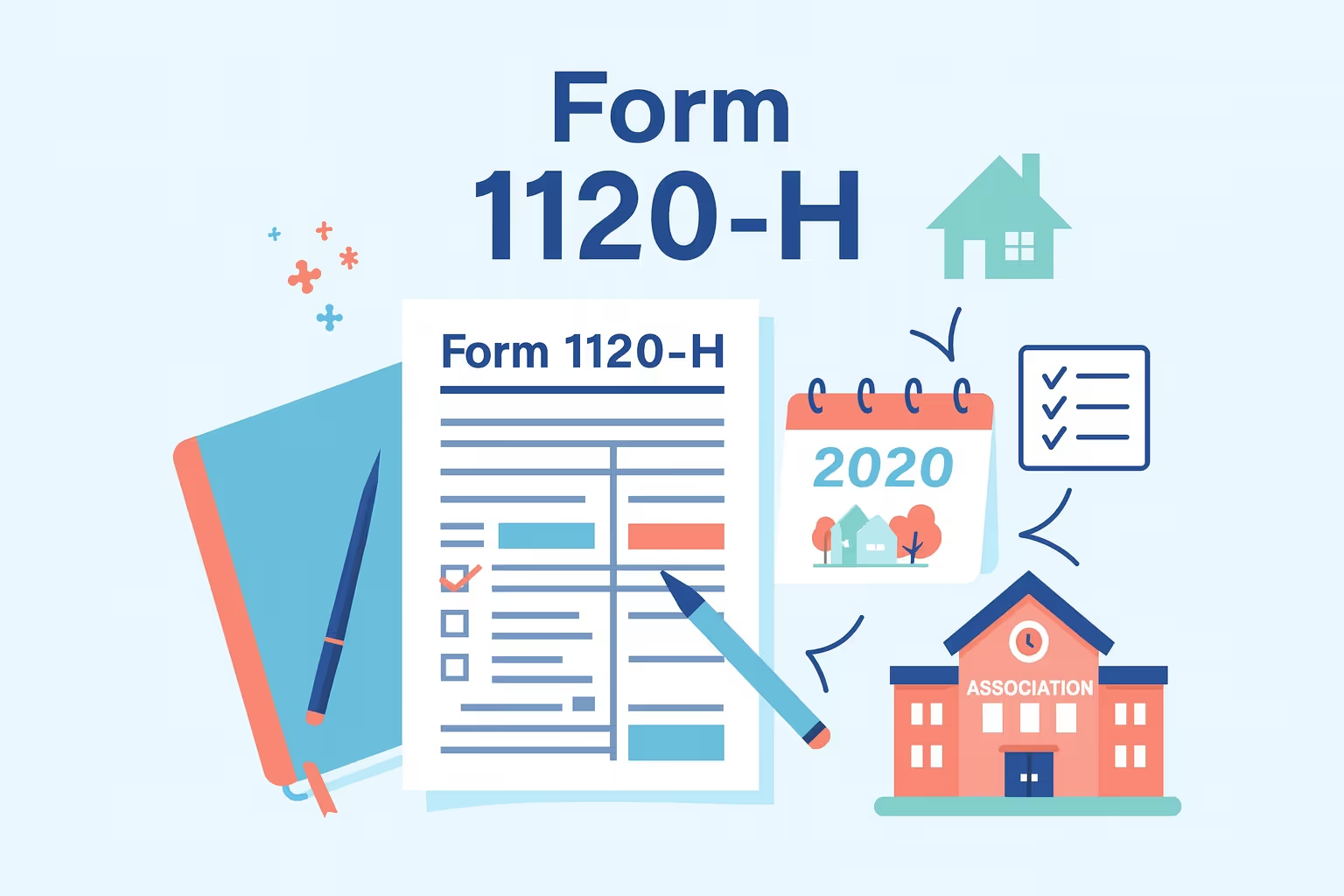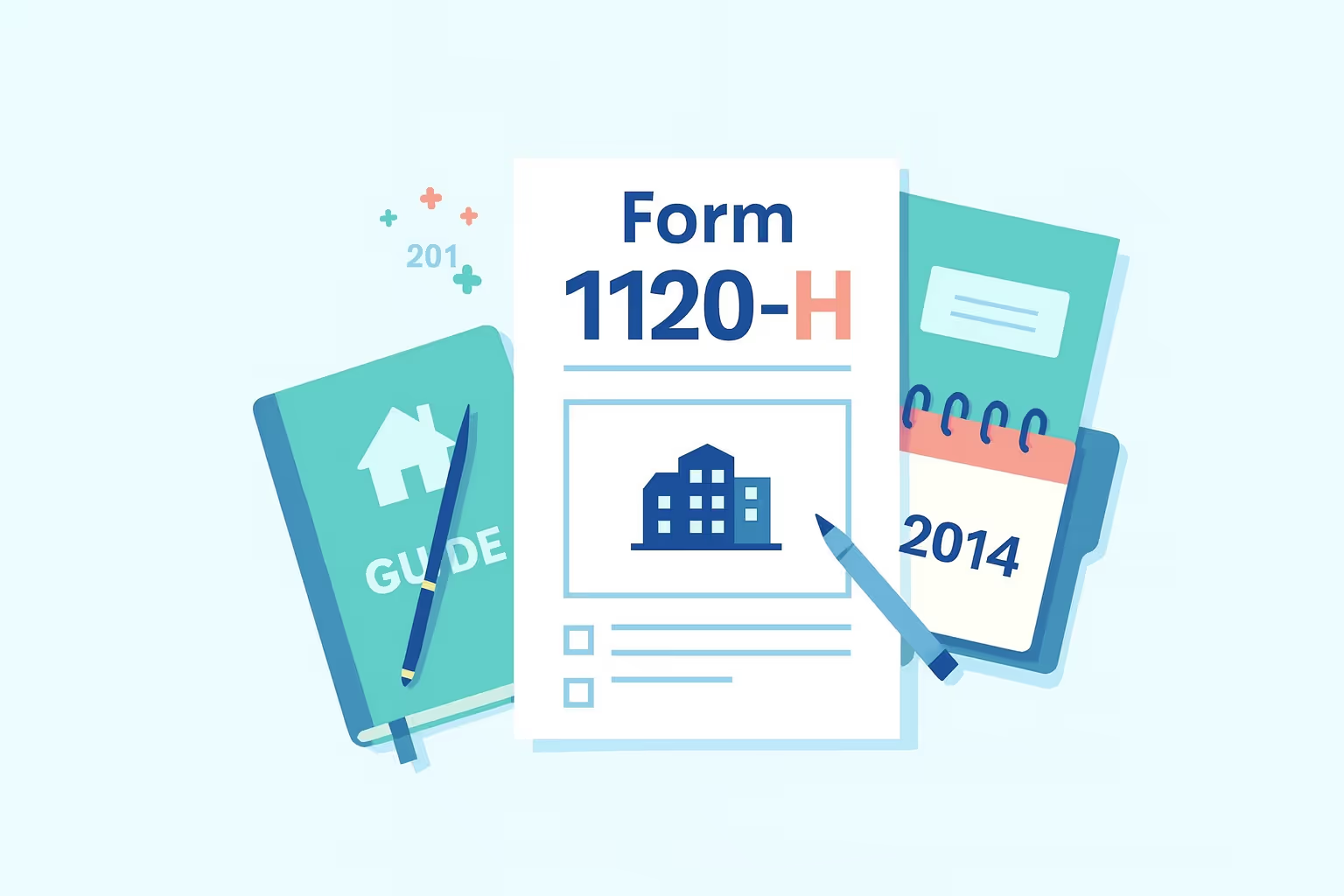
Para qué sirve el formulario 1120-H (2020) del IRS
Formulario 1120-H del IRS (2020) es la declaración de impuestos sobre la renta utilizada por las asociaciones de propietarios para declarar los ingresos brutos de la asociación y solicitar ciertos beneficios tributarios disponibles en virtud de la Sección 528. El formulario permite a la HOA excluir los ingresos por funciones exentas, incluidas las cuotas de membresía, las cuotas, las cuotas y otros ingresos exentos relacionados con los bienes de la asociación y los servicios de la asociación. Los ingresos por funciones exentos consisten en los pagos de los miembros que respaldan el mantenimiento, la reparación o la operación de las áreas comunes.
Solo los ingresos no exentos, como los intereses, los pagos de alquiler, las tarifas de uso de los no miembros y las ganancias de capital, están sujetos a impuestos. Estos ingresos no exentos se gravan con una tasa impositiva fija del 30% para la mayoría de las asociaciones de propietarios de viviendas o del 32% para las asociaciones de tiempo compartido. La elección del formulario 1120-H generalmente otorga a la HOA la exención de impuestos para ese año tributario, siempre que cumpla con los requisitos de presentación. Muchas asociaciones prefieren el formulario 1120-H porque es más sencillo que presentar la declaración regular de impuestos corporativos del formulario 1120 y, a menudo, resulta en el impuesto más bajo.
Cuándo utilizaría el formulario 1120-H para 2020 (presentación tardía o enmendada)
Debe presentar el formulario 1120-H para el año tributario 2020 si la HOA no cumplió con la fecha límite original del 15 de abril de 2021 o el siguiente día hábil cuando la fecha coincide con un feriado legal. Las presentaciones tardías suelen ocurrir cuando el Servicio de Impuestos Internos emite avisos, identifica las declaraciones de impuestos federales faltantes o impone multas en función de los formularios de impuestos no presentados.
Es posible que se requiera una declaración enmendada si la HOA no declaró los ingresos no exentos, asignó mal los gastos directos, utilizó una tasa impositiva incorrecta o calculó incorrectamente los ingresos imponibles. Aún se puede aceptar una elección reglamentaria tardía si la HOA demuestra una causa razonable. La presentación tardía no exime de la obligación de pagar impuestos; el monto total del impuesto continúa acumulando intereses hasta que se resuelva por completo.
Reglas clave específicas para 2020
- Tasa impositiva fija: La tasa impositiva es del 30% para las asociaciones de administración de condominios y asociaciones residenciales, y del 32% para cualquier asociación de tiempo compartido.
- Prueba de ingresos brutos: Al menos el 60% de los ingresos brutos de la HOA deben ser ingresos por funciones exentas.
- Prueba de gastos: Al menos el 90% de los gastos de la asociación deben estar relacionados con la operación y el mantenimiento de la propiedad de la asociación.
- Deducción estándar: Se aplica una deducción de $100 al calcular los ingresos imponibles.
- Pagos de impuestos estimados: Las asociaciones que elijan presentar el formulario 1120-H no exigen impuestos estimados.
- Reservas: Una HOA puede acumular reservas para mantenimiento y reparaciones sin afectar su estado de exención de impuestos, siempre que se sigan las reglas.
Consulte más instrucciones para los formularios de impuestos y guías de presentación en nuestro Centro de formularios.
Paso a paso (nivel alto)
- Reúna las transcripciones: Solicite las transcripciones de las cuentas de 2020 al Servicio de Impuestos Internos para confirmar si las declaraciones de impuestos federales, las presentaciones sustitutivas o los pagos de impuestos se aplicaron a la cuenta de la asociación.
- Complete el formulario 1120-H: Use el formulario tributario correcto para el año tributario 2020 y marque «Declaración enmendada» si corrige declaraciones anteriores.
- Adjunte los horarios de apoyo: Incluya documentación sobre los ingresos imponibles, las ganancias de capital, los gastos directos y los ingresos no exentos para respaldar los cálculos de ingresos de la asociación.
- Envíe la declaración de impuestos por correo: Envía la devolución a Kansas City, MO, u Ogden, UT, según la ubicación de la HOA, incluidos estados como Rhode Island, Carolina del Sur y Virginia Occidental.
- Mantenga registros exhaustivos: Guarde copias de todos los formularios de impuestos, recibos de entrega y cronogramas de respaldo para abordar cualquier problema tributario futuro.
Obtenga más información sobre la presentación de impuestos federales a través de nuestro Centro de ayuda para formularios del IRS.
Errores comunes y cómo evitarlos
- Clasificar erróneamente las tarifas de uso como ingresos exentos: Esto ocurre cuando las HOA tratan los pagos de los no miembros como ingresos exentos de una función no exenta. Para evitar este error, revise si cada cuota cumple con las reglas del IRS para la clasificación de personas exentas de impuestos.
- Si no pasa la prueba del ingreso bruto del 60%: Algunas asociaciones de propietarios asumen que reúnen los requisitos sin calcular los ingresos brutos de la asociación; evite esto confirmando que los ingresos por funciones exentas consisten en al menos el 60% de todos los ingresos.
- Contar incorrectamente los gastos de la prueba del 90%: Las HOA a veces incluyen gastos no exentos no relacionados; evite esto revisando si los gastos de la asociación se relacionan directamente con la administración de la propiedad de la HOA.
- Aplicar una tasa impositiva incorrecta o ignorar la deducción de $100: Los errores en el cálculo del impuesto total afectan a las obligaciones tributarias; evite esto comprobando si la Asociación de Propietarios es una asociación residencial o una asociación de tiempo compartido.
- Usar el EIN o el nombre legal incorrectos: Los detalles incorrectos retrasan el procesamiento del IRS; evite esto comparando la información con las declaraciones de impuestos anteriores y los registros internos de la HOA.
- Pasar por alto las ganancias de capital o los ingresos por intereses: Algunas HOA pasan por alto la lista de todos los ingresos no exentos; evite esto revisando los estados de cuenta bancarios y las cuentas de inversión.
Obtenga más información sobre cómo evitar problemas con los impuestos empresariales en nuestra guía sobre Cómo presentar una solicitud y evitar sanciones.
Qué sucede después de presentar la solicitud
El Servicio de Impuestos Internos generalmente procesa el formulario 1120-H en varias semanas. Si la HOA adeuda montos de impuestos, el IRS enviará un aviso indicando el saldo adeudado. Las asociaciones que no puedan pagar impuestos de inmediato pueden solicitar un acuerdo de pago a plazos para los saldos inferiores a 25 000 dólares, pero los intereses siguen acumulándose a partir de la fecha de vencimiento original.
Si el IRS hace ajustes, la HOA aún tiene derechos de apelación. La presentación precisa y puntual ayuda a minimizar las multas y hace que las declaraciones de impuestos de la HOA cumplan con los requisitos para futuras temporadas tributarias.
Preguntas frecuentes
¿Puedo presentar el formulario 1120-H (2020) del IRS aunque haya pasado la fecha límite?
Sí, puede presentar el formulario 1120-H (2020) del IRS incluso si la declaración de impuestos se retrasa. La presentación tardía puede conllevar multas, pero la presentación de la declaración garantiza que el Servicio de Impuestos Internos actualice los registros tributarios de la asociación y calcule con precisión cualquier obligación tributaria pendiente. La presentación también evita que se acumulen más multas y mantiene al día las futuras declaraciones de impuestos de la HOA.
¿Cómo afectan los ingresos por funciones exentas a la declaración de impuestos sobre la renta de una corporación para una HOA?
Los ingresos por funciones exentas reducen los ingresos imponibles al eliminar de los impuestos las cuotas de membresía, las cuotas y los cargos calificados. Al presentar una declaración de impuestos sobre la renta de sociedades, como el formulario 1120-H, solo los ingresos no exentos están sujetos a impuestos. Esta estructura permite a muchas asociaciones de propietarios reducir su carga tributaria total y mantener la condición de exentas de impuestos cuando reúnen los requisitos de conformidad con la Sección 501 (c) (4) del Código de Impuestos Internos.
¿Cuándo debe una HOA usar el formulario 1120-H en lugar del formulario 1120?
Una HOA debe usar el formulario 1120-H cuando cumpla con los requisitos de presentación, incluida la prueba de ingresos del 60% y la prueba de gastos del 90%. Las asociaciones que reúnen los requisitos reciben ciertos beneficios tributarios, una tasa impositiva fija predecible y una presentación de informes más sencilla. El formulario 1120 es obligatorio cuando la Asociación de Propietarios no cumple con los estándares de la Sección 528 o elige un tratamiento diferente para ese año fiscal.
¿Debo presentar el formulario 1120-H si la HOA normalmente presenta declaraciones de impuestos utilizando otros métodos?
Debe presentar el formulario 1120-H si la asociación elige ese formulario para el año tributario. La presentación de las declaraciones de impuestos federales con este formulario permite que los ingresos exentos permanezcan libres de impuestos y garantiza que solo se declaren los ingresos imponibles. Muchas asociaciones prefieren este enfoque porque agiliza la preparación de las declaraciones de impuestos de la HOA y reduce el riesgo de errores.
¿Cuál es la fecha límite para las declaraciones de impuestos de la HOA y qué requisitos de presentación se aplican?
La fecha límite para las declaraciones de impuestos de la HOA es el día 15 del cuarto mes siguiente al final del año fiscal, generalmente el 15 de abril, a menos que la fecha caiga en un fin de semana o un feriado legal. Los requisitos de presentación incluyen declarar los ingresos brutos de la asociación, enumerar los ingresos no exentos y pagar cualquier obligación tributaria adeudada. La presentación de la declaración a tiempo ayuda a evitar multas y mantiene una buena reputación ante el Servicio de Impuestos Internos.



